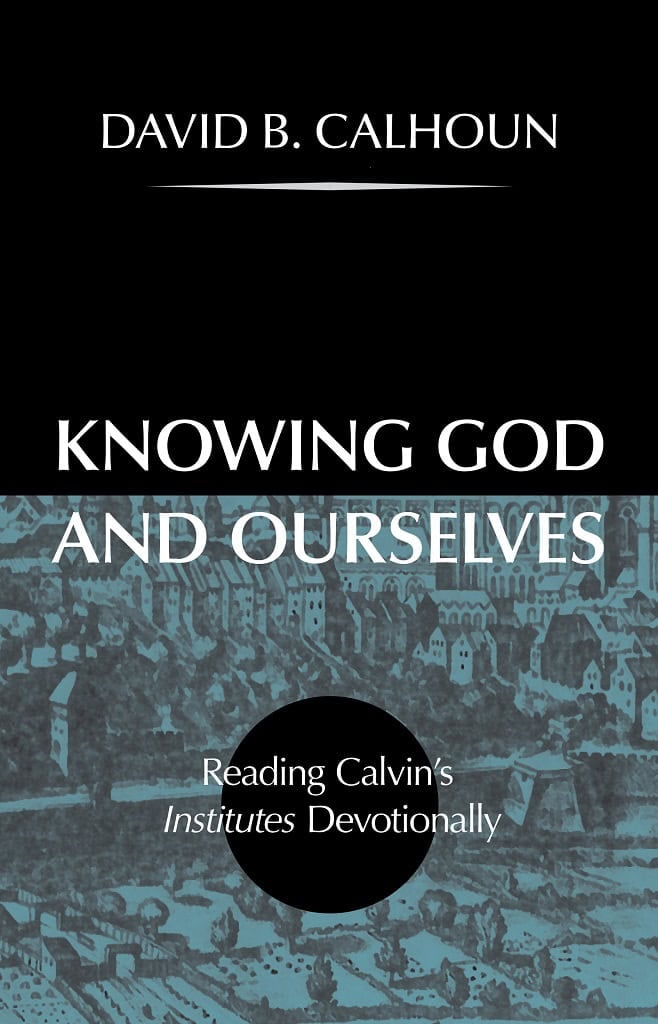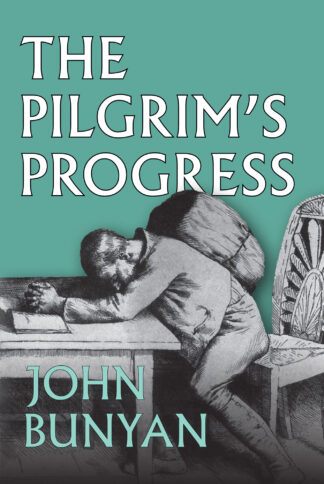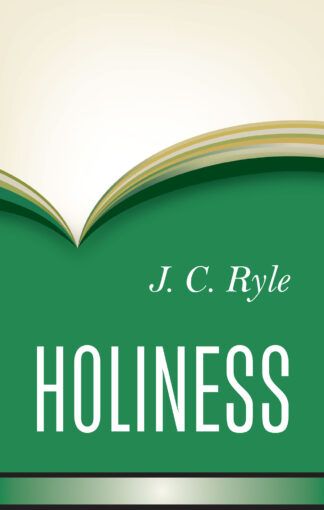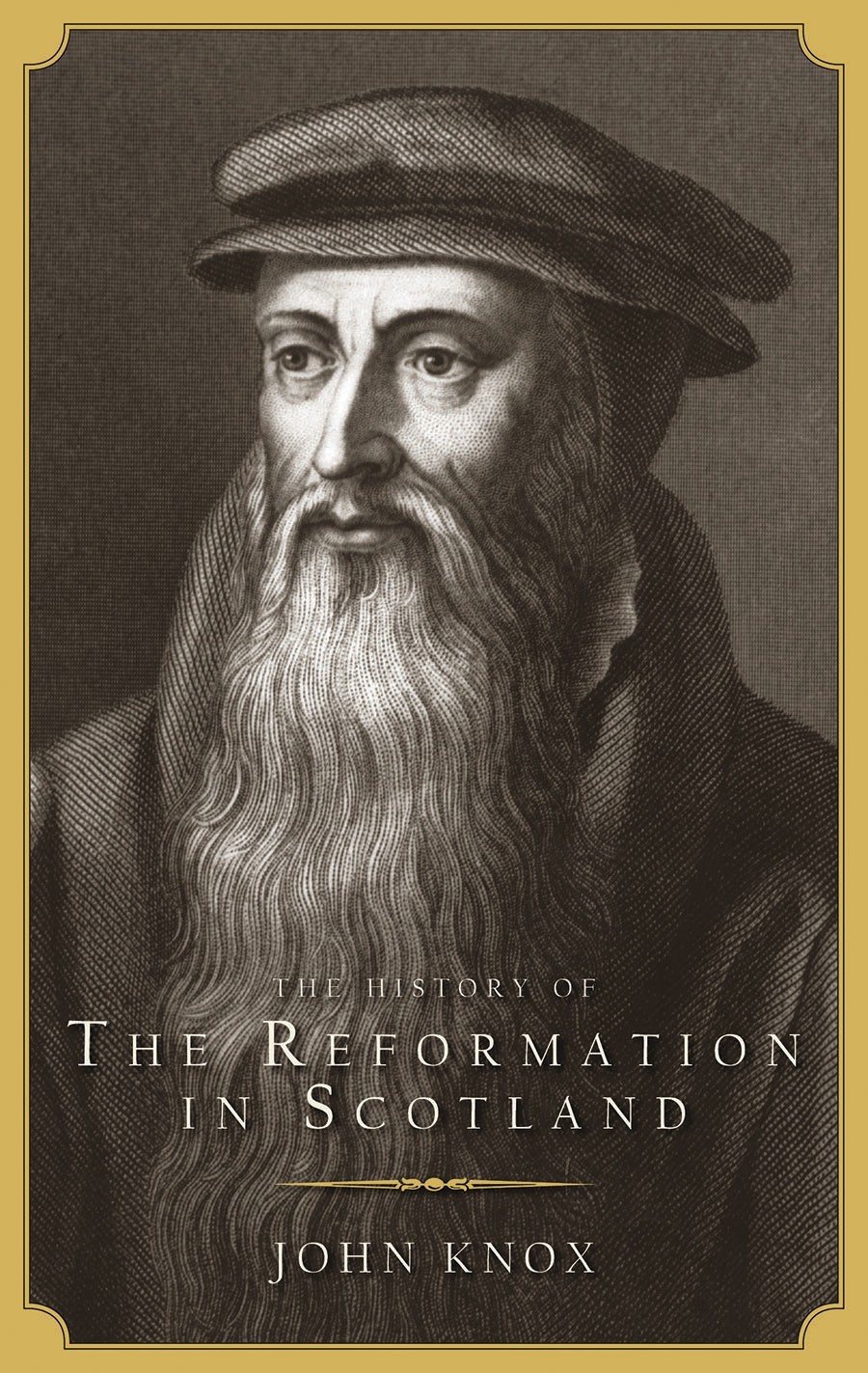Preparing a Methodical Assault on Our Unread Books
According to an oft‑quoted saying of Francis Bacon, reading makes a full man, writing an exact man, and conversation a ready man. Experience shows the observant Christian that he was right. There is no ordinary way for a person to attain to fullness of knowledge in the things of God apart from a diligent application to good books. Not that Bacon’s saying applies only to religious subjects, but that is our interest and concern here since we believe that God’s summons to us to worship him ‘with all the mind’ involves us as believers in the duty of developing and enlarging our knowledge of spiritual subjects all the days of our life. That means we must read books.
We have no wish to humble the devout believer who has not been given the ability to read or who cannot, perhaps for reasons of poor sight, read more than a few lines in an hour or in a day. But it is our respectful belief that every Christian ought to attempt to become an habitual reader, unless he is constitutionally incapable of it. The mind of man was created for the acquisition of knowledge and the improvement of our existing store of learning. Whatever the mind is, it is a marvellous gift of God which has the capacity for growth, enlargement, memory and application to knowledge. To develop our minds, God has seen fit to provide us with books. That is not to say that we cannot learn by other means, but books are the time‑honoured way in which Christians have bettered themselves and, in some cases, have attained to a remarkably high level of that ‘fullness’ which Bacon refers to. It is not too much to say that books are to minds what food is to the stomach or air to the lungs.
There are many obstacles to be overcome if we are to become regular and profitable readers of good books. Reading, if it is to be serious and on serious subjects, is not an easy exercise. It is a stern and unwelcome discipline to steel oneself to sit down for an hour or two in order to concentrate on a volume of divinity or of spiritual biography. ‘The flesh’ may well resent like poison the act of taking down from the shelf a thick book and then imprisoning the body for some considerable length of time in a chair while the eyes are compelled to travel over some miles of print and the muscles and nerves of the body are given no permission to relax or exercise in the normal way.
No one would read unless the good to be had from it vastly outweighed the discomfort and disinclination experienced at the thought of it–at least, few would. But reading is not for the few. It is and ought to be the regular practice of every Christian who is not, for some reason or other, incapacitated for it.
It is no surprise that reading, as an occupation, tends to increase or decrease in a society with the rise and fall of the gospel. When people become converted they find grace to overcome their natural distaste for reading books, but when they have no grace they choose pleasures in other and more congenial forms. In past ages that might be in gladiatorial shows, in the arena or in hunting. Today, thanks to the television, society has ready to its hand the perfect vehicle for conveying the maximum of interest while providing the minimum of profit. Even so, it is a lamentable fact that in our generation very few–even of Christians–are reading regularly and profitably. It is an index, very probably, of the small measure of grace which we as modern Christians possess. It is also a scandal for which we have need to be ashamed.
Some people, apparently, naturally collect Christian books as philatelists collect stamps or as amateur naturalists collect wild flowers. They are more interested in what they look like in the bookcase than in what is to be found between the covers. No book‑lover could ever entirely frown on this habit even if it is a fondness for books which falls short of perfection. There is something profitable in having good books ‘on hand’ even if they are not very regularly opened. It is rather like having access to great minds and to wise counsellors; even if their wisdom and genius are seldom consulted, their presence is a strength and a comfort. But there must surely be a better way.
Surveying the Task Ahead
There are very many brethren who so far excel us in the diligent use of their libraries that it would be an impertinence for us to offer guidance to them on how to improve as readers. The following suggestions are made rather to help those Christians who find reading difficult. We offer them some advice as to how to get a little more profit from their books than perhaps they did before. We assume that most Christians will have a great many more good books on their shelves than they have read or have serious intentions of reading. Our observations indicate that this is a rather widespread malady and one that calls for remedial action before it becomes a chronic paralysis.
The problem then to which we address ourselves is that of transforming the books on our shelves from being merely ornamental to becoming vehicles of actual blessing and knowledge to us as we take them down and read them. This is most emphatically a task worth surveying because there is no remote possibility of our reading everything in our lifetime and because it is the policy of a wise person to confront his problems squarely and practically. What, in a word, are we going to do to profit from our unread books?
The first piece of guidance we would offer is that every book must be assessed very largely in terms of its author. The better the author, the better the book. There are exceptions to every rule, but this surely is the rule. If, therefore, we have a hundred unread books, we must attempt to classify them in the above way, giving priority to those authors past or present who are admitted to be most profitable. A page by one writer is worth more than a whole volume by another. We must attack our unread books with some kind of scientific order of priority, ensuring that we go for the best first as far as possible.
Then we need to allocate time and concentration to the task. Ministers will have to do more than others in this respect, but every Christian should make the attempt to get into the good habit of settling down to concentrate on worthwhile books even if he has less time for it than a minister. A book will normally only yield up its treasure when the reader devotes his whole attention to it. Therefore do not read to the accompaniment of music or with the television in the background. It is better to read ‘hard’ for one hour than to skim over the text inattentively for three.
Having picked the hour or hours for reading, the Christian needs to summon his strength and courage to study the book in his hands with a view to getting as much good from it as possible before he puts it down again. The first acute problem he may discover at this stage is that of initial inability to comprehend. A serious book may not be easy to understand until we have read at least one or two chapters. The thoughts, ideas and concepts may be so new and unfamiliar to one who has no formal theological training that the first few pages may read like a sea of words with no recognisable meaning. The reader, however, must be persistent. A great book is like a voyage of discovery. There are stormy seas to be crossed before the traveller attains the golden strand. Too many give up while still in sight of home, but the reader who presses on to unknown realms of thought will many a time experience an exhilaration which is akin to that of an astronomer who finds a new star. Put to sea prayerfully in a volume of Owen or Goodwin and you will marvel at what you discover, even if the first ten pages threatened shipwreck.
Assuming the reader at last breaks into his book, the next problem he will meet is a flagging concentration. A stiff book demands sustained attention and average powers of concentration begin to sag after a while. The problem is so commonplace, that no reader of experience needs to be reminded of it. Many are the pages we have all ‘read’ while our minds were somewhere else. Our eyes travelled over the print but our thoughts were absent, or perhaps merely dormant. Only our arrival at the end of a chapter, or perhaps the ringing of the doorbell, recalled us from our dreamy self‑deception to a guilty consciousness that we had not the slightest idea what we had been reading about for the past ten minutes. No inexperienced reader need despair when he catches himself nodding over his books in this way. Not one in ten thousand of good readers could plead ‘not guilty’ to the same infirmity. But there are steps one may take to help overcome this.
A notable biblical scholar we heard of had the following method for keeping up his concentration. If he had, let us say, an hour of time at his disposal, he would select three books and place two beside him on the floor. He would read furiously for twenty minutes in the first book and then put it down. He then rose up, walked round the room taking deep breaths, took the second book in the pile and repeated the performance. This he did till he had ‘got something’ from each of the three volumes. He maintained that he could derive more profit from attacking briefly the three books than by attempting just one. His reasoning was sound. Everyone’s level of concentration drops once there is a sense of monotony. By going for three different volumes and by making a pause every twenty minutes he was taking effective measures for maximising his concentration.
Varying the Approach
Let not the above illustration lead to the thought that every book may, or even must, be read furiously. The scholar must, of course, cover far more ground than the average reader. But the average reader, if he is to go about the duty seriously, must also learn that some books can be read faster than others. Indeed, the same book may be read at different speeds in different places and at different times. We might take an example to elucidate our point. Supposing the reader aims to read through Calvin’s Institutes for the first time, he might do well to adopt some such approach as the following. We assume that his circumstances do not permit him to spend more than two hours on the task in any one day.
The first hour might be taken up with a careful study of the ‘Contents’ so that the subject of the book may be seen as a whole. Then the parts of the work should be seen as they relate to the whole: Book I: ‘God the Creator’; Book II: ‘God the Redeemer’; Book III: ‘The Application of Redemption’; Book IV: ‘The Church and the Means of Grace’.
From this framework the reader then notices that the first two books deal with matters on which Protestantism and Roman Catholicism are largely agreed, but that the last two books handle a great many vital issues on which they are in irreconcilable disagreement. With some attention, and even at this early stage, the student discovers that Calvin long ago faced the highly contemporary question of whether revelation continues in the church or not (I.ix), that he addresses the mysterious subject of how God uses the wicked for good ends (I.xviii), that he demolished all arguments for free‑will (II.v) and that he believed the Mosaic Law should hold a far higher place in a Christian’s life than most believers think necessary today. We select these items at random and merely as illustrations of the benefits to be had from a thoughtful reading of the ‘Contents’ of a great book.
The mind has now absorbed the outline of the Institutes and the moment has arrived for setting out on the twelve hundred or so pages of magisterial argument which make up this famous work. The reader unfamiliar with Calvin must allow himself time to settle down to the Reformer’s style and encyclopaedic powers of thought. So the next hour’s reading may not cover more than a few sections of the book. That does not matter. The very process of reading one of the greatest writers God ever raised up in the Church will produce salutary effects upon the mind. If no more than one quarter of the writer’s meaning is understood at this stage, it is doing us good. Subconsciously the mind is being re‑set into new patterns of thought. In a week’s time, with steady progress every day, Calvin’s meaning will become clearer and the form of his reasoning more influential and formative upon us.
A little earlier we suggested that the speed at which we read may profitably be varied. We return to the point now as we pursue the illustration we have begun of a first‑time reading of Calvin’s Institutes. Our imaginary reader has, let us say, been a fortnight on his task, reading about an hour each day. We shall suppose him to be a third of the way through the book and beginning to yield to the inclination to give up and attempt something ‘less demanding’.
The question now to be addressed is: By what means can he induce himself to go on? He has understood and enjoyed some sections of the work but has now come to several particularly taxing chapters which he finds exasperatingly difficult. The urge to give up grows stronger with each passing paragraph. Languor deepens into tedium and tedium darkens into despair. What is to be done?
In our judgment, it is a mistake to turn the reading of a good book into an exercise in self‑torment. The wisest way is to pass on rapidly to a subject more readily understood and more immediately profitable. Interest rises and falls with comprehension and with a sense of achievement. If the mind feels that it cannot digest any more, then lay the present book aside with a mark to show where it is left off and proceed to read something entirely different.
A few days with a simpler theme relaxes the mind and enables it to go back to the deeper subject with fresh resolve. The inclination to ‘give up’ on a classic book such as the Institutes ought always to be qualified by the determination to go back to it after a pause of some weeks. If the worst situation of all occurs and the mind absolutely rebels, then at least complete the work by reading through the chapter and section headings. This last is a desperate expedient but on occasion it must be done and, indeed, every now and then it serves to revitalise our interest in the whole book when we had nearly despaired of ever reaching the end.
Our reference to Calvin, of course, is purely incidental and illustrative. In no way is it intended to suggest that he is tedious or turgid. The approach we indicate here might be tried with any of the classic and standard writers such as Augustine, Owen or a hundred others. The concern we wish to express is simply that we must endeavour to pour the contents of our books into our minds and not to turn them into familiar, but unserviceable, ornaments in the bookcase. Whatever the method we use, we must attempt to draw up some method. As Christians, it is essential that we knuckle down to disciplined reading habits if we are to rise at all above the spirit of our age.
A word ought to be said, before concluding, on the subject of how our reading of spiritual books may become a means of deepening our religious feelings, as distinct from our minds. Spiritual books benefit both intellect and heart. This is how it ought to be in our experience as readers. Consequently, it is a good practice to read two sorts of books, those which stretch our minds and those which fire and inspire our emotions. The reading of good theology and divinity (by which we mean applied theology) ought to go hand in hand with the reading of a good history or biography. The one gives us a firm skeleton of truth; the other covers the skeleton with the flesh and blood of warm, lively humanity.
The fault of our age is to read shallow books about shallow subjects and to postpone the reading of our classic writers till the fancy takes us. However, experience suggests that the fancy will never take us if we do not do violence to our bad habits by drawing up a plan of war on our handsome–yet unread–volumes of theology.
This article was first published in the April 1991 edition of the Banner of Truth magazine and remains relevant to readers still today.
Classics to Get You Started

Knowing God and Ourselves
Reading Calvin’s Institutes Devotionally
Description
According to an oft‑quoted saying of Francis Bacon, reading makes a full man, writing an exact man, and conversation a ready man. Experience shows the observant Christian that he was right. There is no ordinary way for a person to attain to fullness of knowledge in the things of God apart from a diligent application […]

Description
According to an oft‑quoted saying of Francis Bacon, reading makes a full man, writing an exact man, and conversation a ready man. Experience shows the observant Christian that he was right. There is no ordinary way for a person to attain to fullness of knowledge in the things of God apart from a diligent application […]

Holiness
Its Nature, Hindrances, Difficulties, and Roots
Description
According to an oft‑quoted saying of Francis Bacon, reading makes a full man, writing an exact man, and conversation a ready man. Experience shows the observant Christian that he was right. There is no ordinary way for a person to attain to fullness of knowledge in the things of God apart from a diligent application […]

Description
According to an oft‑quoted saying of Francis Bacon, reading makes a full man, writing an exact man, and conversation a ready man. Experience shows the observant Christian that he was right. There is no ordinary way for a person to attain to fullness of knowledge in the things of God apart from a diligent application […]
Latest Articles
Finished!: A Message for Easter March 28, 2024
Think about someone being selected and sent to do an especially difficult job. Some major crisis has arisen, or some massive problem needs to be tackled, and it requires the knowledge, the experience, the skill-set, the leadership that they so remarkably possess. It was like that with Jesus. Entrusted to him by God the Father […]
Every Christian a Publisher! February 27, 2024
The following article appeared in Issue 291 of the Banner Magazine, dated December 1987. ‘The Lord gave the word; great was the company of those that published it’ (Psalm 68.11) THE NEED FOR TRUTH I would like to speak to you today about the importance of the use of literature in the church, for evangelism, […]
